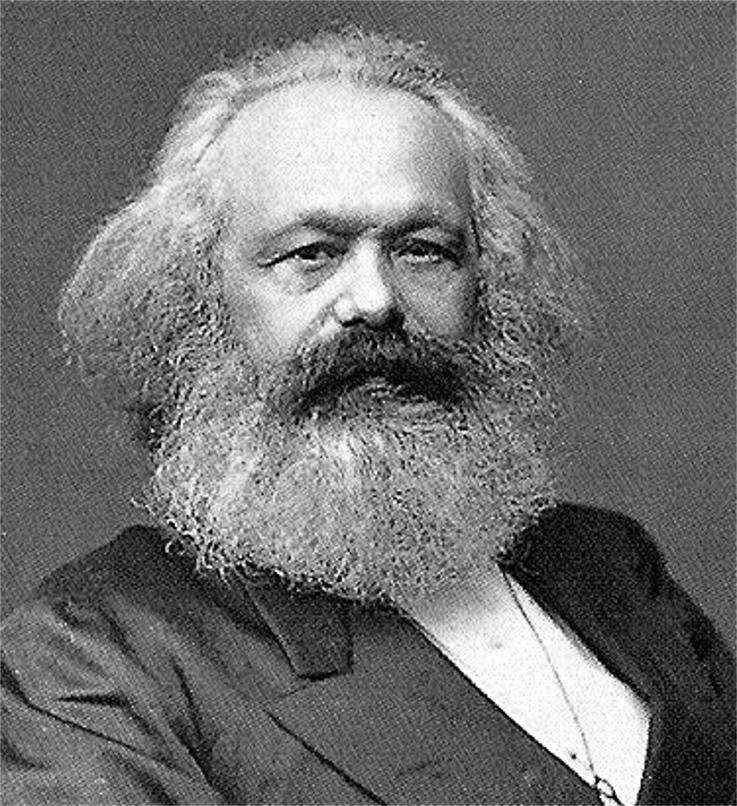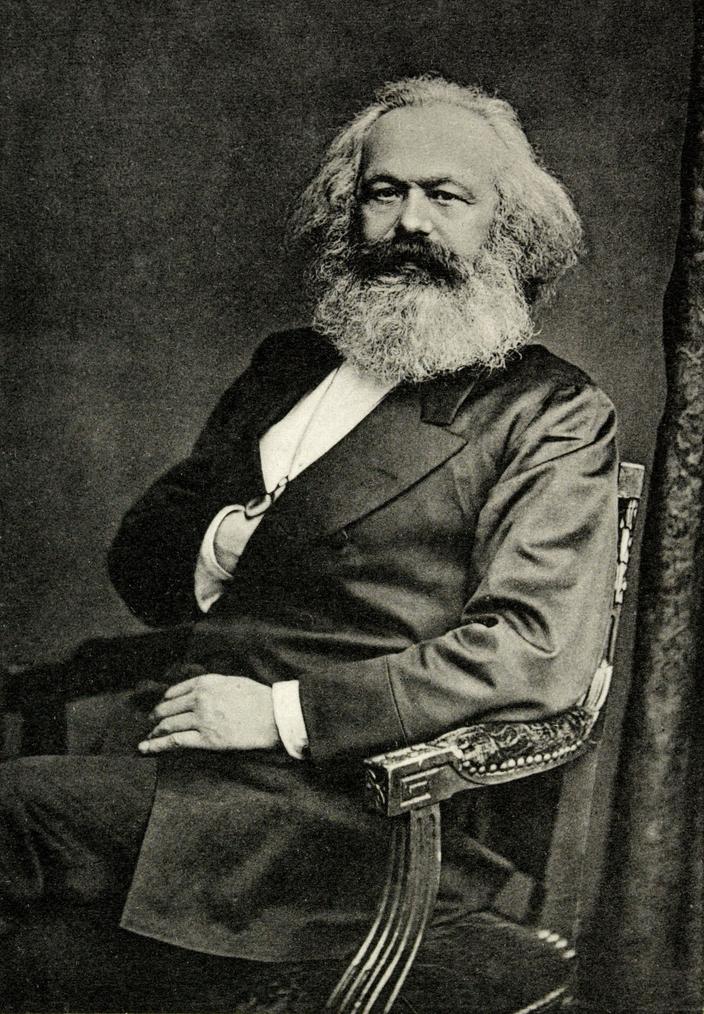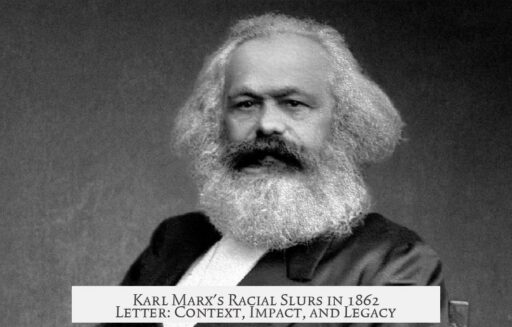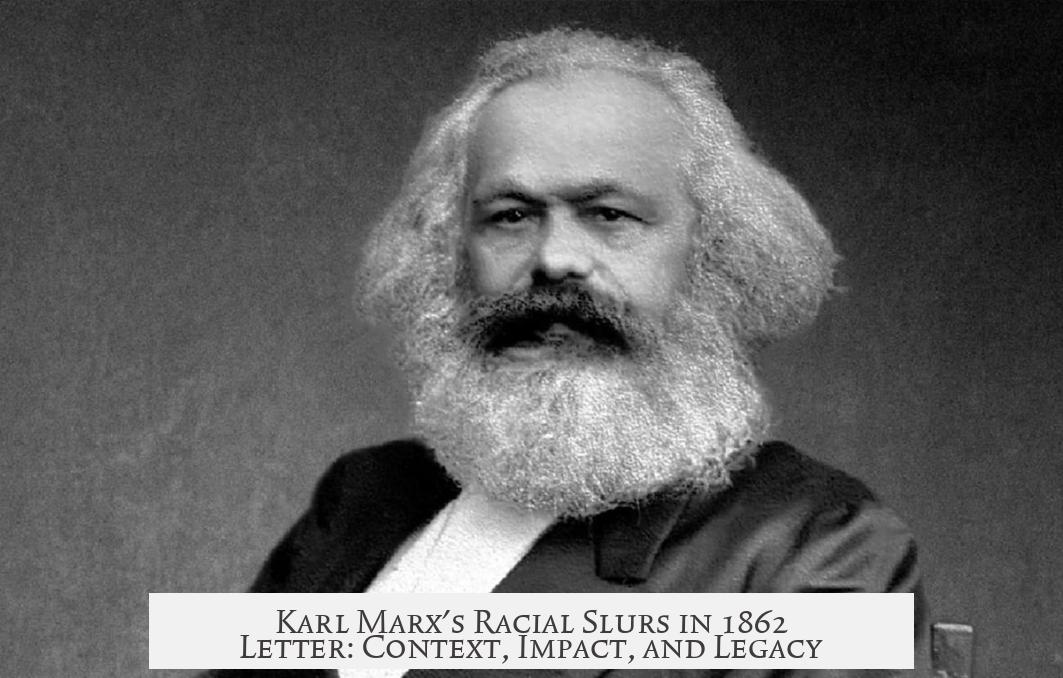Karl Marx used racial slurs in his letter to Friedrich Engels on July 30th, 1862, reflecting a complex blend of 19th-century racial prejudice and Marx’s Eurocentric worldview within his broader analysis of class and society. His language was not merely casual or conforming to contemporary standards; it was often deliberate, serious, and closely tied to his political and social thought. Marx’s use of such slurs exposes deep contradictions between his theoretical work promoting class struggle and the persistence of racist attitudes towards non-European peoples.

Marx’s letters, including those to Engels, contain multiple examples where racial slurs appear alongside anti-Semitic remarks. A key case involves Ferdinand Lassalle, a socialist leader with whom Marx had ideological conflicts. Marx’s racial language here is harsh, signaling genuine prejudice rather than simple social convention. The same tone also emerges in references to Paul Lafargue, Marx’s son-in-law born in Cuba to a creole mother. Engels himself employed similarly offensive racial imagery in correspondence with Marx’s family, demonstrating that these views were not restricted to Marx alone but shared within his close intellectual circle.
This repeated use of racial slurs indicates that Marx and Engels seriously engaged with race as a factor influencing social relations and historical development. Far from being detached “above” race, they regarded race as a key element shaping economic and social evolution. Marx’s conception of the industrial working class, however, was ethnocentric and largely excluded Black people. This exclusion reveals that Marx’s materialist approach was intertwined with the racial biases of his milieu, limiting his vision of a truly universal proletariat.

At the same time, Marx supported abolitionist causes and expressed support for the emancipation of enslaved people. In a letter to Abraham Lincoln in 1864, Marx congratulated the American people for resisting the “Slave Power” and noted “Death to Slavery” as a war cry. Yet, even here Marx’s view was ambivalent. He categorized Black populations in America into those “Yankified” and more capable of emancipation and those he saw as inherently less fit due to racial characteristics shaped by social environments and economic conditions.
Marx’s racial prejudice stems from his background. As a Western European intellectual of the 19th century, Marx’s judgments were deeply conditioned by prevailing Eurocentric and racial hierarchies. He viewed race and ethnicity not as fixed biological essences, but as historical and material phenomena. Marx and Engels conceptualized racial characteristics as shaped by economic conditions and social relations—dynamic rather than eternal traits. They believed that humans sharing similar social and environmental conditions over long periods acquired distinct, ingrained racial profiles that changed with history.

This materialist understanding does not exempt Marx from racist language and thought. His work demonstrates that racist ideas coexisted with his core theory of historical materialism. Rather than being contradictions, these elements were entangled in his worldview. The widespread use of racial slurs in personal correspondence underlines how deeply ingrained these prejudices were.
Marx’s racial attitudes reveal the limitations of his legacy regarding race and class. While he advanced revolutionary critiques of capitalism and imperialism, his writings and private letters show that he did not transcend the racial biases of his era. Today, the recognition of these aspects encourages a more nuanced and critical examination of Marx’s works and the historical context in which he operated.

- Marx used racial slurs seriously, reflecting prevalent 19th-century racial prejudices.
- His conception of the working class was Eurocentric and excluded Black people.
- Marx and Engels saw race as historically and economically conditioned, not innate.
- Both supported abolitionism but held ambivalent racial views on emancipation.
- Marx’s racial language exposes contradictions in his theoretical and personal views.
Why Did Karl Marx Use Racial Slurs in His Letter to Engels on July 30th, 1862?
Karl Marx’s use of racial slurs in his letter to Engels dated July 30th, 1862, reflects deeply ingrained racial prejudices that were both serious and consistent with his worldview. These remarks were not isolated slips but part of a broader Eurocentric and racially charged perspective entrenched in Marx’s and Engels’ writings and personal correspondence.

So, why exactly did Marx resort to such language? This question is thorny, stretching beyond mere social norms of the 19th century to reveal the contradictions and complexities in Marx’s thoughts on race, class, and social progress. Let’s dive into a detailed exploration of this controversial aspect of a figure better known for his revolutionary ideas on capitalism.
Contextualizing Marx’s Racist Remarks

First, it’s crucial to place Marx within his historical and cultural environment. His racial slurs couldn’t be simply dismissed as casual social banter or common parlance of his time. However, ignoring them outright or excusing them due to the era’s “standards” also misses the mark.
Marx’s racist language, especially in personal letters to Engels, is part of a blind spot often overlooked in Marxism studies. Today, as debates about statues and historical figures arise, these slurs gain new attention and require an accurate contextualization. Marx lived in a period of intense racial hierarchies — colonialism, slavery, and emerging racial sciences shaped European and Western worldviews deeply.
Specific Instances and Who Was Targeted
Marx’s letters show explicit racial slurs towards several individuals close to him. One notable example is the hostile language aimed at Ferdinand Lassalle, a socialist leader and former ally turned rival. Lassalle, being Jewish, became the subject of anti-Semitic and racialized insults intertwined with political conflict.
Another striking example involves Marx’s son-in-law, Paul Lafargue, born in Cuba to a creole mother. Both Marx and Engels used racially charged language towards Lafargue. Engels, in a letter to Marx’s daughter Laura (Lafargue’s wife), famously referred to Paul as “a degree nearer to the rest of the animal kingdom” due to his race. This wasn’t some throwaway insult; it reveals genuine racial contempt.
Seriousness Behind the Slurs
One might wonder if Marx and Engels resorted to these words as mere products of their time or rhetorical excess. The evidence suggests otherwise. These remarks appear frequently in their correspondences, indicating a serious conviction rather than a casual adherence to social norms.
Repetition and intensity across different instances underline that these racist attitudes were deeply held and not simply performative or accidental.
A Eurocentric View of the Working Class
Marx’s critique of capitalism focuses predominantly on the European working class. His concept of the proletariat largely excluded black people or actions beyond European industrial societies, revealing a Eurocentric bias. In effect, Marx’s imagined working class was white and European.
This exclusion points to a narrower racial conception behind his revolutionary outlook. Black workers and colonized peoples rarely figured as core subjects in his analysis, reflecting racial blindness or bias.
Race as a Factor in Social Evolution
More broadly, Marx and Engels regarded race as a factor influencing social evolution. This wasn’t race in a purely biological sense but as part of the socio-economic development of societies. Carlos Moore insightfully noted that both theorists believed race affected the trajectory of social and economic conditions.
This belief, while rooted in 19th-century intellectual traditions, also laid groundwork for their racialized views of human capacities and social roles — some of which were outright prejudicial.
The Ambivalence of Emancipation and Racism
Interestingly, Marx’s position on race is ambivalent. For instance, in November 1864, Marx congratulated Abraham Lincoln on his re-election, celebrating the commitment to ending slavery in the United States. This gesture aligned Marx with abolitionism and social liberation.
Yet, even within this progressive stance, Marx maintained a racial hierarchy. He distinguished between “less-capable” African peoples and the so-called “Yankicised” or Anglicized black populations, whom he considered somewhat fit for emancipation. This differentiation reveals the persistence of racial prejudices beneath political progressivism.
Marx’s Background as a Factor in His Views
It’s important to grasp that Marx and Engels were products of their backgrounds. Both were Western Europeans — white, free men from 19th-century bourgeois societies. Their political judgments and theories were inevitably colored by this perspective, limiting their ability to fully empathize with or envision the plight of colonized, enslaved, or non-European peoples.
Carlos Moore again offers clarity: their analyses were “naturally conditioned” by their racial and social positions. This context explains the coexistence of radical economic thought with racial prejudice.
Racism and Historical Materialism: Are They Compatible?
You may wonder how Marx could hold racist views while promoting historical materialism—the idea that class struggle and economic factors drive history. The answer is complex. Marx’s racism and his view that economic relations shape society aren’t necessarily contradictory in his framework.
Marx viewed racial and ethnic qualities as products of economic and environmental conditions rather than inherent, fixed traits. Both race and class were seen as evolving categories influenced by material realities. Thus, his racial prejudices coexisted uneasily but logically with his economic theories.
Racial-Ethnic Characteristics: Products of Economic and Environmental Factors
Marx and Engels believed that humans residing under common social and economic relations, and exposed to similar environmental conditions over time, would develop shared racial or ethnic characteristics. These “racial profiles” were not static but constantly changing through history, shaped by social transformations.
This approach tried to blend biological observations with social analysis but often leaned toward racial determinism, especially in how they hierarchized peoples based on these perceived traits.
Support for Abolitionism Despite Racial Prejudices
While Marx harbored unflattering and “nasty” ideas about black people, he was nonetheless a supporter of abolitionism. He saw the fight against slavery as crucial and urged Lincoln to “lead his country through the matchless struggle for the rescue of an enchained race.”
Yet, his support came with caveats, including the belief that black Americans had become partly “Yankicised” and thus more capable of emancipation. Similarly, he spoke of the Chinese awakening from “hereditary stupidity,” showing both an evolutionary and racist view of peoples’ capacities and progress.
Humans and Nation-States as Products of History, Not Biology
Crucially, Marx and Engels rejected the idea that innate biology determined human worth or social roles. Instead, they believed that humans and nations are products of their history and social conditions. This was a hallmark of their materialist philosophy.
However, their views on race still reflected the pervasive racial biases of their time and personal limitations.
What Can We Learn From This?
So, what can we take away from Marx’s racial slurs and prejudices?
- Acknowledge Complexity: Marx was a man of contradictions. His radical critique of capitalism coexisted with racial biases rooted in his era and background.
- Historical Context Doesn’t Excuse: Understanding context helps, but it doesn’t erase the harm or implications of racist language.
- Eurocentrism Matters: Marx’s Eurocentric worldview limited his imagination of a truly inclusive working class and liberation struggle.
- Modern Reflection: Contemporary Marxism and left-wing politics must confront these legacies honestly while building anti-racist frameworks.
In the end, the letter from July 30th, 1862, serves as a reminder. Even the sharpest thinkers harbor flaws. Examining these flaws sharpens our critical thinking and pushes us towards more inclusive, equitable social theories today. Marx’s racial slurs aren’t just historical footnotes—they reveal the need for ongoing struggle against all forms of oppression, including racism.
Does knowing Marx’s prejudices change how you view his work? Can revolutionary theory grow beyond its founders’ limitations? These questions invite continuing conversation and reflection in the quest for social justice.




